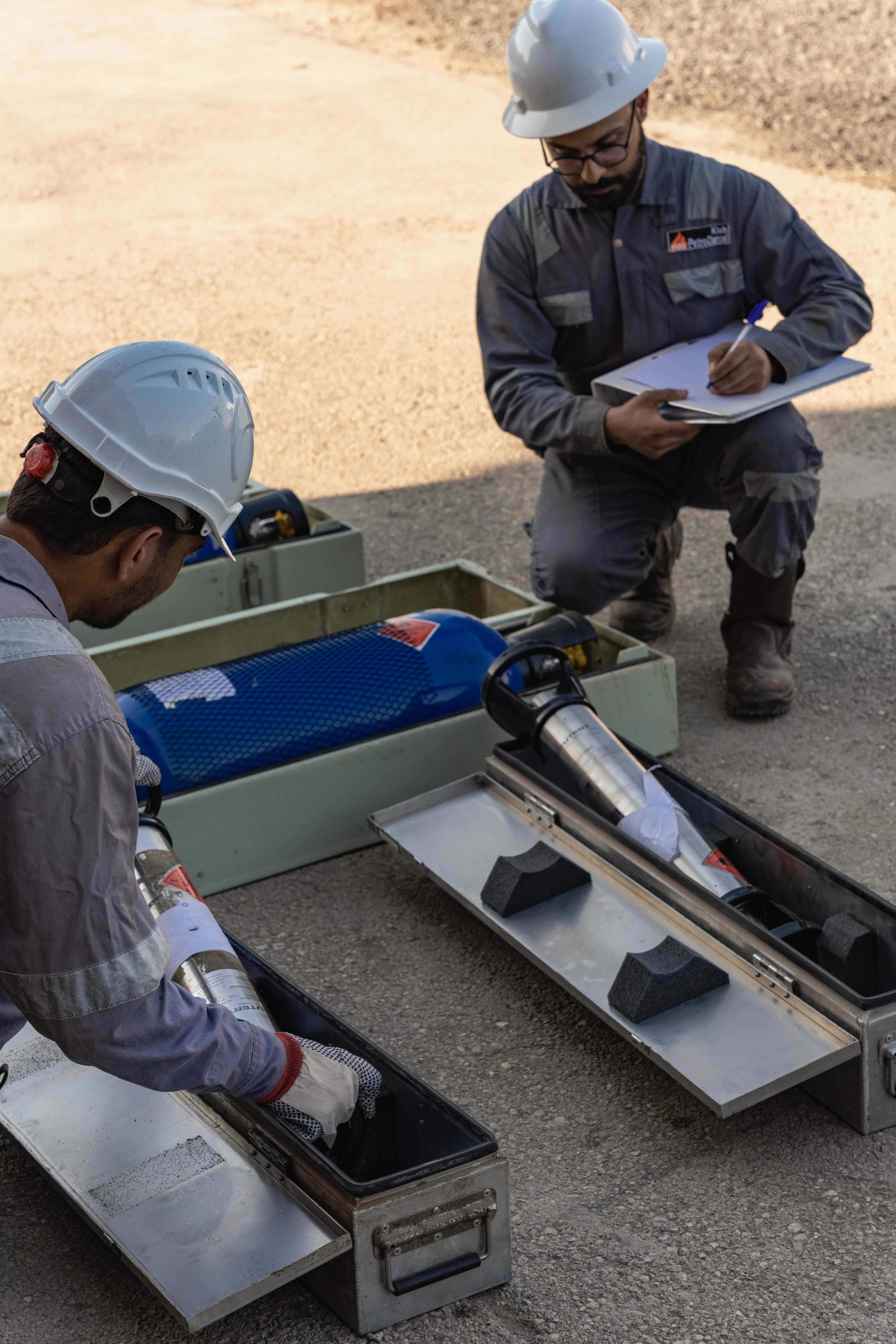Tests on oil and gas wells are performed at various stages of well
construction, completion and production. The test objectives at each stage
range from simple identification of produced fluids and determination of
reservoir deliverability to the characterization of complex reservoir
features. Most well tests can be grouped as productivity testing or
descriptive testing. PDK offers various types of Surface Well Testing
including: Conventional Test and Clean up, High Rate Test and Clean up.
Drill Stem Test (DST) is a method of gathering data on the potential
productivity of a reservoir before a permanent completion string is
installed. DST has been the industry standard for testing new and
especially exploration wells for almost a century. These tests are one of
the primary methods used to evaluate a new formation to determine its
commercial feasibility. These tests are typically performed using a
special DST tool that has downhole pressure gauges installed.
PDK Special DST solution offers complete DST strings and internationally
experienced and trained personnel, PDK is perfectly capable to fulfill DST
operations with up to 15 Kpsi down hole pressure and temperatures up to
410 degF.
Perforating is a process used to establish a flow path between the near
reservoir and the wellbore. It normally involves initiating a hole from
the wellbore through the casing and any cement sheath into the producing
zone. PDK provides various types of Perforation techniques in Overbalanced
and Underbalanced conditions, such as Wireline Perforation, Coiled Tubing
Perforation (CTP), and Tubing Conveyed Perforation (TCP) with different
Gun types (HSD, Enerjet, Phased Enerjet, Spiral, ...), and vast range of
Gun sizes (", 4-1/2", 3-3/8", 2-1/8", 1-11/16", ...) for both Oil and Gas
wells.
